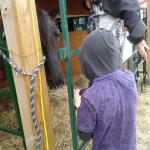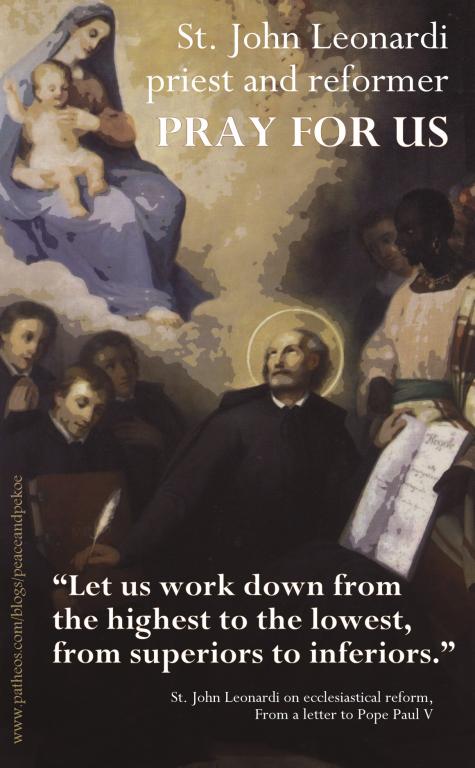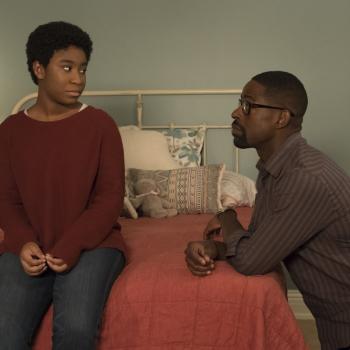I spend a lot of time with Google.
When I was a child, arguments between siblings about matters of fact frequently ended with my parents sending us to the encyclopedia to look up an answer. We had a full set of Funk and Wagnalls, and an even more well-loved science encyclopedia (plus yearly update edition) from Grolier. Even when the encyclopedia didn’t contain an answer to our specific dispute, the search for an answer frequently turned a combative pride-fueled verbal skirmish into a cooperative romp through our reference materials, skimming through entries for cool facts and trivia to share, coming up with more questions and searching for more answers. Later, there was the Encarta digital encyclopedia, and then, as search engines improved, the whole world of professional and amateur web resources.
When I read or participate in an argument with someone online, there’s still this voice in the back of my head that says, “Don’t just argue about it. Look it up!”
That’s how I came to be reading about police reform in the US.
We all vaguely know that the NFL players sitting out or kneeling during the US national anthem are protesting racism. Some know that it has something to do with police shootings in the US. But reading argument after argument over the last three weeks, it started to hit me how much we assume we know, not because we’ve asked the questions and looked for answers, but because we think we know what people–particularly the people we disagree with–are really like.
Last week, after the third time I saw someone say something along the lines of “If these guys really cared about black communities, they’d be volunteering and donating their money the way other, quieter NFL players do, not grandstanding,” I pulled up a list of protesting players and started Googling their names plus the word “charity” and “community.” I learned that the protesting players are much like the rest of the NFL–most are engaged in some kind of community work or charity, and some–the most outspoken, at that–have gone above and beyond. Had those commenters shown some curiousity, they might have discovered this for themselves–but their assumptions squelched their curiousity. They felt no need to ask the question because they believed they already knew the answer.
I had a similar moment of curiousity today, when reading another commenter’s characterization of the protests as being “slacktivism” over a “pet cause” (police shootings) that claims, she said, far fewer lives than other social issues. What do they hope to accomplish, anyway?
So I Googled “what nfl protesters want.”
It turns out that some of the protesting players have a lot to say.
To begin with, of course, there was Kaepernick, responding to the scandal of lax (or non-existent) penalties in police brutality cases. “There are bodies in the street and people getting paid leave and getting away with murder,” Kaepernick told journalists last year after his quiet protest started gaining attention.
However, the scope of the protest appears to have widened fairly quickly. NFL players testified before Congress in April about the need for better community policing practices, saying
When the players spoke, they addressed reform from several angles. They said that they’re not “anti-police” and that it’s possible to be both pro-police and pro-black.
...Boldin called for better development of community-police relations and more federal hearings on criminal justice reform. He wants to see Congress use the extent of its power to ensure that the wrong people aren’t becoming officers and that they are vetted the same way athletes are.
Over the summer, Michael Thomas reflected on the need for action as well as protest.
His anthem protest became an extension of his The First Step program, which connects police officers and at-risk youth at pregame tailgates, town hall meetings and other local events to improve police-community relations.
“It’s not just about taking a knee,” Thomas said. “We’re trying to take next steps. We’re trying to find solutions.”
We as citizens must make this work a priority. Consider our money-bail system. In 2016, police punched 58-year-old Gilbert Cruz in the face and arrested him for refusing to leave his own home during an investigation. Unable to make the $3,500 bail, Cruz spent more than two months in a Houston jail. By the time prosecutors finally dropped the case after concluding he had committed no crime, Cruz had lost his job, his car and almost his home.
While issues like the money-bail system, civil forfeiture, and reintegration after imprisonment are issues of racial justice because of disproportionate arrest and conviction rates, it seems to me that these are things a lot of white Americans should also care about, particularly low-income Americans–and perhaps more would, if they asked the right questions about what kinds of justice reform protesters–whether NFL players or Black Lives Matter–are looking for.
So why don’t we ask more questions? Why do we assume so much?
The cheap shot answer would be to say that we don’t want to risk discovering that we are wrong, that not asking the questions is a form of bad faith, of suspecting the answers won’t support our conclusions.
But I don’t think that’s the case–at least, not most of the time. I think we don’t ask questions because the virtue that sparks curiousity is perhaps the rarest and most difficult virtue of all: humility.
I won’t claim this virtue for myself. My curiousity is an intellectual habit formed at an early age, and more to the credit of my parents than myself. It’s possible to be intellectually curious about other people’s reasons and arguments without being open to being convinced by them.
But it seems to me that the kind of curiousity that is willing to be persuaded is impossible without a humble awareness of my own fallibility. Humility keeps us aware of our own limitations, and actively seeking to transcend them and grow in wisdom and knowledge. It is essential to temperance and prudence, and the counter to pride.
While pride assumes knowledge and self-reliance, humility questions them. Do I know what I think I know? Might I be missing something? Could I learn more about this topic?
What am I missing? How could people of good will reach different conclusions about this? Who might I learn from?
I want to keep asking questions. I want to be better at letting the answers move me.
How about you?












